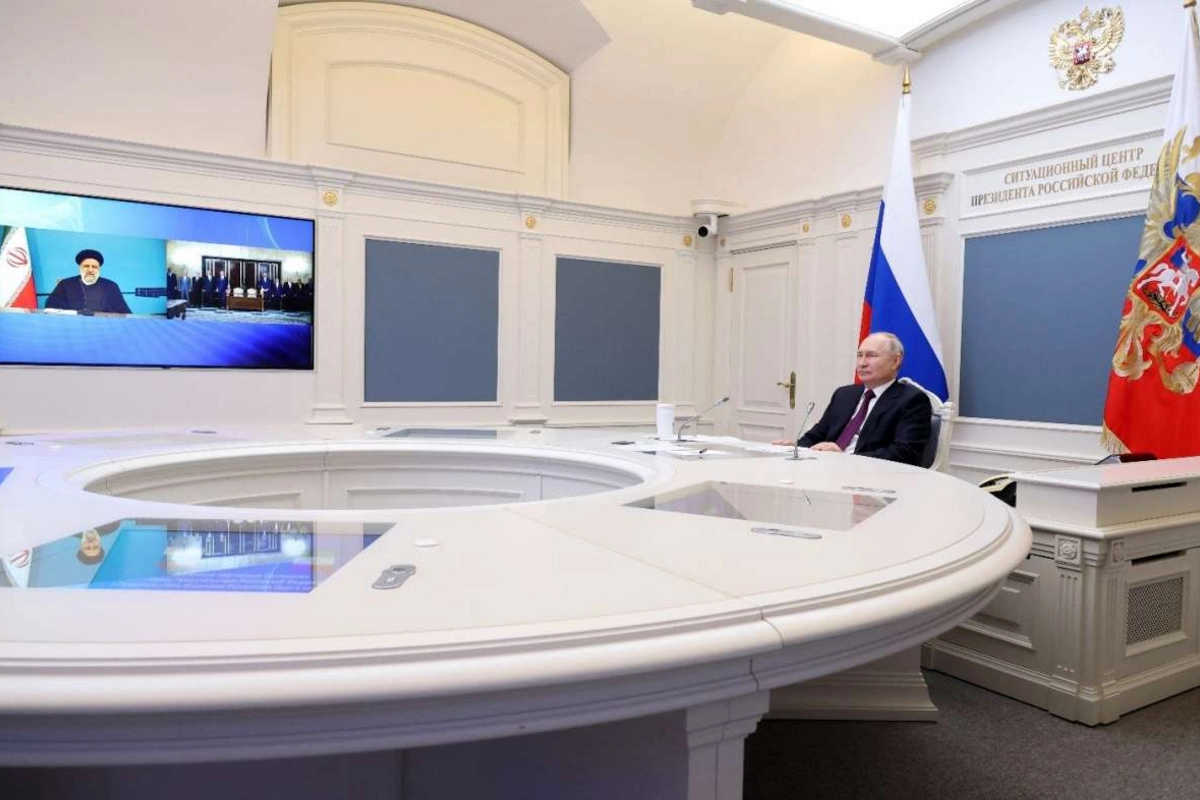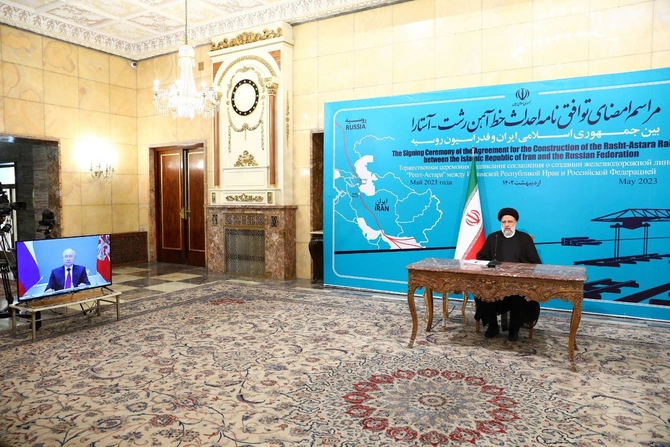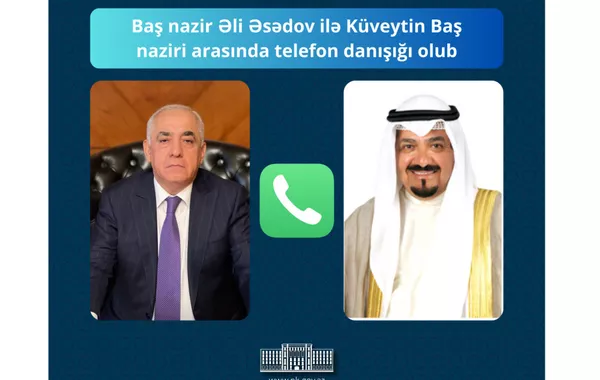
With West-led sanctions against both countries, Russia and Iran have signed a deal to finance and build a rail corridor that "can rival the Suez Canal."
Russian President Vladimir Putin, together with Iranian President Ebrahim Raisi, takes part in the ceremony of signing an agreement on the construction of the Rasht-Astara railway, via video link at the Kremlin in Moscow, Russia May 17, 2023. Sputnik/Mikhail Klimentyev/Kremlin via REUTERS
TEHRAN (Reuters) - Russian President Vladimir Putin and his Iranian counterpart Ebrahim Raisi on Wednesday oversaw, via video-link, the signing of a deal to finance and build an Iranian railway line as part of an embryonic international North–South Transport Corridor.
The Rasht-Astara railway is seen as an important link in the corridor, intended to connect India, Iran, Russia, Azerbaijan and other countries via railways and sea - a route that Russia says can rival the Suez Canal as a major global trade route.
"The unique North-South transport artery, of which the Rasht-Astara railway will become a part, will help to significantly diversify global traffic flows," Putin said.
He also said the 162 km (100 mile) railway along the Caspian Sea coast would help to connect Russian ports on the Baltic Sea with Iranian ports in the Indian Ocean and the Gulf.

Iranian President Ebrahim Raisi, together with Russian President Vladimir Putin, takes part in the ceremony of signing an agreement on the construction of the Rasht-Astara railway, via video link at the Office of the President of Iran, in Tehran, Iran, May 17, 2023. Iran's Presidency/WANA (West Asia News Agency)/Handout via REUTERS
"Without a doubt, this agreement is an important and strategic step in the direction of cooperation between Tehran and Moscow," Raisi said.
Russia and Iran have been pushed to strengthen their political and economic ties by Western economic sanctions on each, which both say are unjustified.
Since the 1979 Islamic Revolution that swept U.S.-backed Shah Mohammad Reza Pahlavi from power, Iran has been ostracised by the West and its economy crippled by a myriad of sanctions. It holds around a quarter of the Middle East's oil reserves.
The West also imposed other set of restrictions over Iran's nuclear program, while Russia was sanctioned due to its actions in Ukraine.
Share on social media
